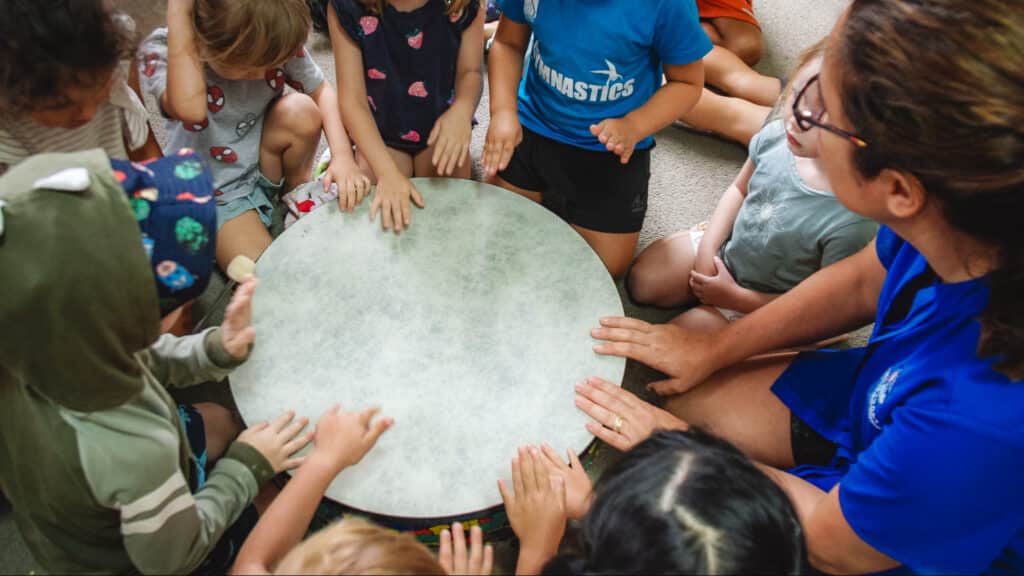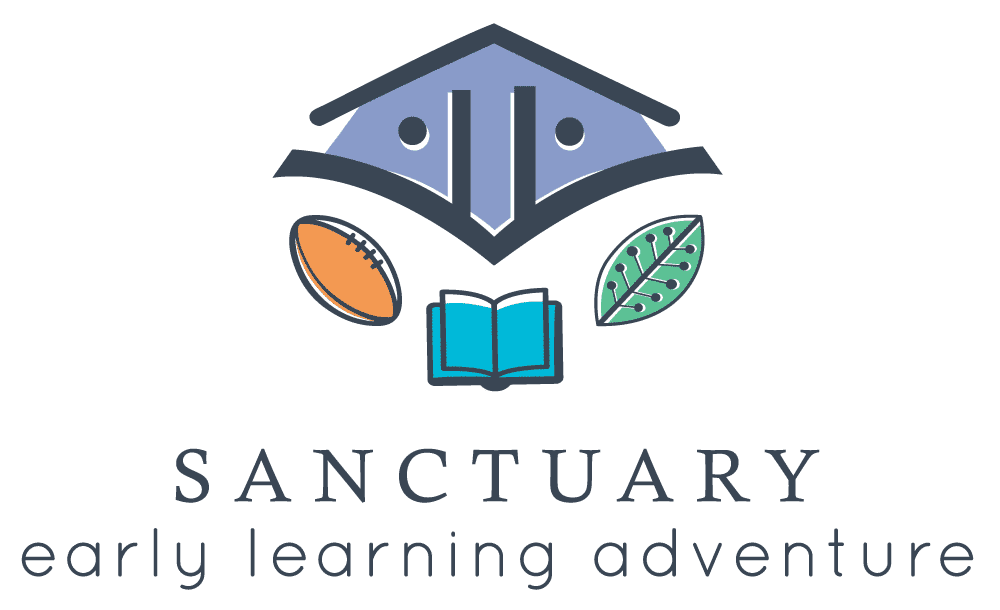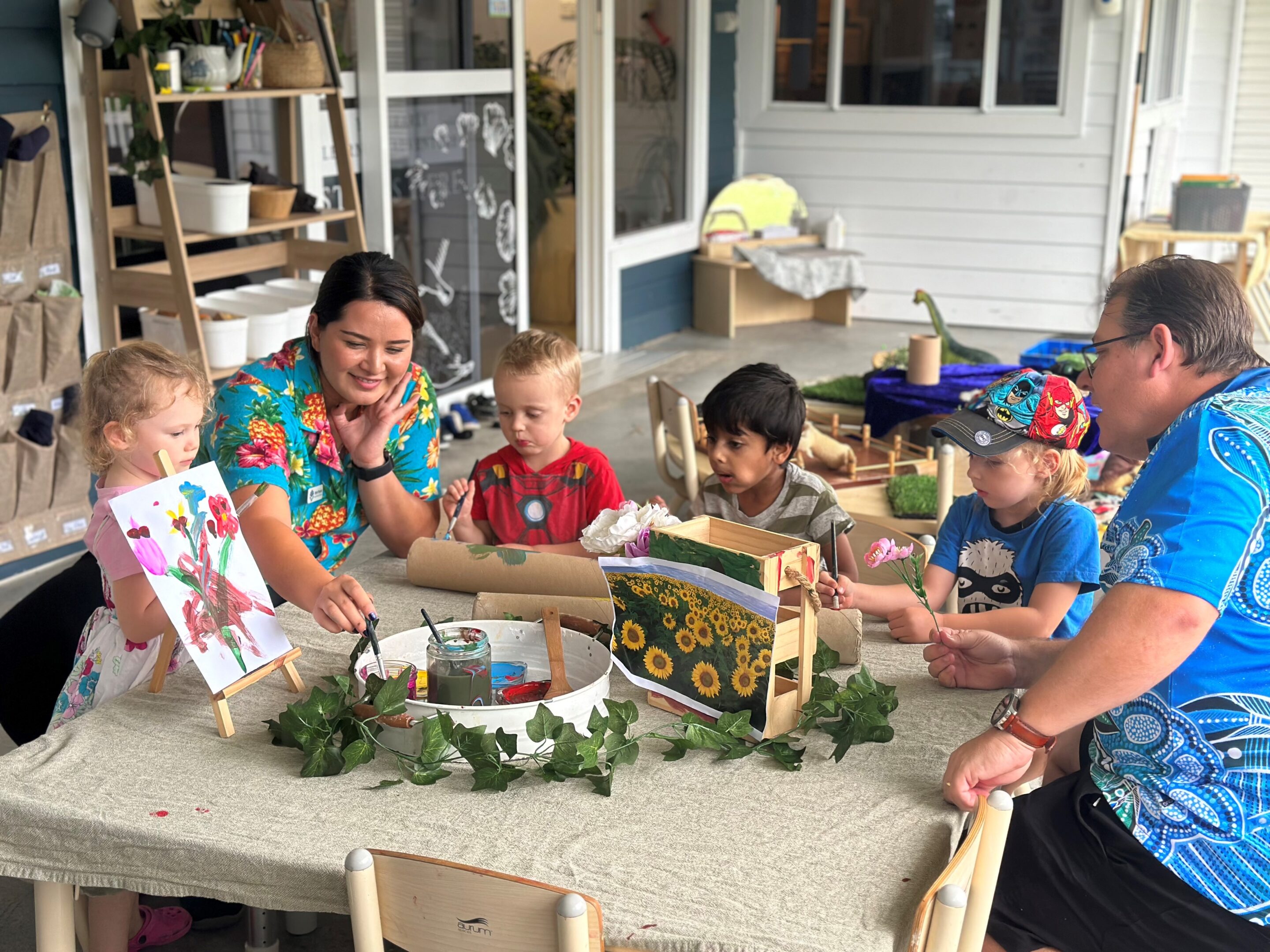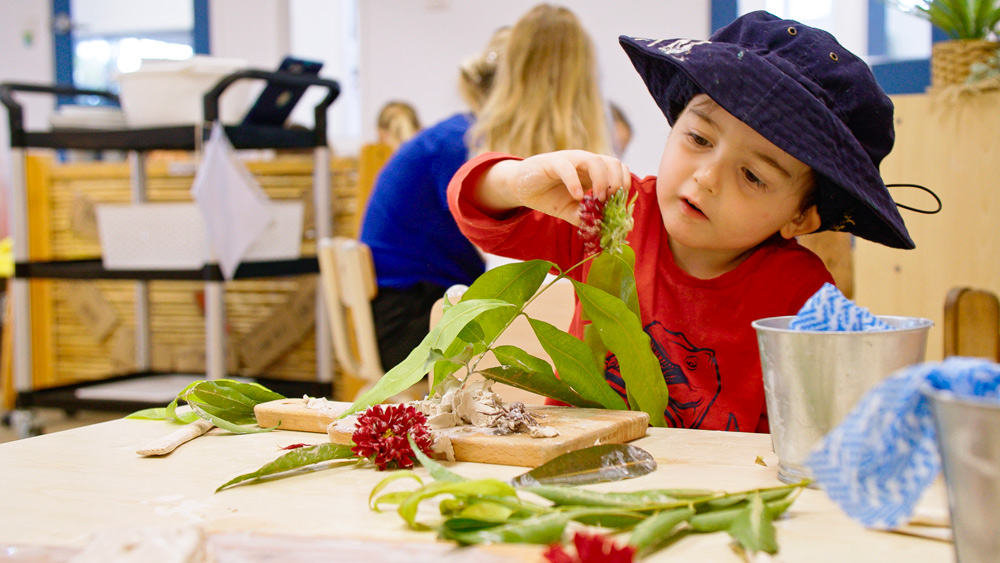
When it comes to childcare, incorporating music into daily routines goes beyond just entertainment.
It’s a powerful tool for learning, growth and development. The nuances of rhythms, melodies and harmonies offer a number of benefits in childcare.
In this blog, we’ll explore the profound impact of music on children’s learning and discuss the reasons why it’s indispensable in childcare settings.
Why Is Music Important in Childcare?
Cognitive Skills Enhancement
- Brain Stimulation: Listening to music activates neural pathways, promoting faster and more diverse synapsis connections within the brain.
- Memory and Concentration: Recalling song lyrics or tunes exercises a child’s memory. This consistent workout for the brain enhances its capability to retain other forms of information.
- Analytical Abilities: Music often follows patterns. Recognising these patterns can help with problem-solving and logic-building exercises later in life.
Emotional and Social Development
- Emotional Expression: Through songs, children can relate to various emotions, giving them an outlet to express and understand feelings like happiness or excitement.
- Bonding and Teamwork: Group music activities encourage collaboration. This paves the way for stronger social connections.
- Cultural Awareness: Introducing children to a diverse range of music genres from different cultures broadens their horizons and promotes inclusivity.
Physical Development
- Motor Skills: Coordinated movements, like dancing or playing an instrument, refine a child’s gross and fine motor skills. These activities challenge and hone their physical agility.
- Rhythmic Coordination: Actions like clapping, foot-tapping or moving to the beat of a drum develop coordination and timing. It’s a playful way to train the body to respond to auditory cues.
Language and Literacy
- Vocabulary Expansion: Songs introduce children to new words and pronunciations, enhancing their vocabulary. This exposure is often in a repetitive and catchy format, making retention easier.
- Phonetic Awareness: Rhymes and rhythms in songs can highlight the sounds of letters and syllables, forming a foundation for reading skills.
Fostering Creativity
- Imagination: Crafting stories or scenarios around songs fosters creativity. A child might imagine a landscape while listening to a tune or craft a story around a song’s lyrics.
- Musical Exploration: Exposure to various instruments or types of music might spark a child’s interest in exploring music more deeply, leading them to learn an instrument or create their own melodies.
Music is much more than just a backdrop in childcare settings. It’s a multifaceted tool that, when used effectively, can greatly enhance a child’s overall development and readiness for future academic and social endeavours.
Experiences that Incorporate Music in Childcare
Music offers an abundance of opportunities to create engaging experiences that not only entertain children but also educate them in multiple ways. The following musical experiences can be seamlessly integrated into childcare settings:
- Sound Effects: Use musical instruments to add sound effects to stories. The rustling of leaves or the galloping of horses can be depicted using shakers or drums.
- Sing-Along Tales: Convert parts of a story into catchy songs that children can join in singing. This can help in memorising key events or characters.
- Mini Musicals: Children can enact simple stories where they sing their dialogues and use instruments for effects.
- Musical Statues: Play music and encourage children to dance. When the music stops, they must freeze. This not only brings laughter but also develops listening skills and body coordination.
- Beat Match: Play a rhythm and have children replicate it using claps or instruments. This helps in auditory recognition and rhythmic coordination.
- Lyric Creation: Encourage children to pen down their own lyrics about a topic or their day. This boosts creativity and gives them a medium to express their feelings.
- Melody Making: Using simple instruments or voice modulations, children can experiment with creating their own melodies.
- Guess the Instrument: Play the sounds of different instruments and have children identify them, enhancing their auditory discrimination skills.
By integrating these musical experiences, childcare settings can become vibrant spaces of learning, expression and joy. They not only make the day more enjoyable for children but also impart vital skills that lay the foundation for their future development.
Incorporating Traditional Tunes
It’s important to integrate traditional songs and melodies that children might hear at home. Familiar tunes can provide comfort and introducing diverse songs widens a child’s cultural understanding.
From lullabies that have been passed down through generations to popular children’s songs known across households, these melodies hold educational and emotional value.
Benefits Beyond Childhood
The benefits of music are not limited to childhood. The foundations laid in these formative years establish pathways in the brain that assist in academic pursuits. They foster a love for music, often leading to continued learning of instruments or singing.
Additionally, they can instil a sense of discipline and dedication if a child pursues musical training. It’s evident that music isn’t just a pastime. It’s an important element in holistic development, ensuring children are well-rounded, expressive and ready for the challenges of the future.
Interactive Music Classes at Our Childcare Centre
At Sanctuary Early Learning Adventure, we recognise the value of integrating music into childcare. It’s not just about having fun; it’s about giving children the tools to grow, learn and thrive. We offer interactive music classes by experienced professionals to help children develop memory, language and coordination skills. Get in touch with us for more information.






